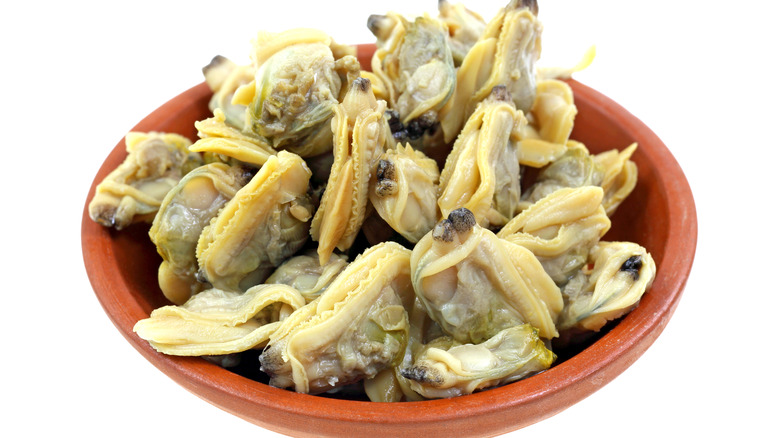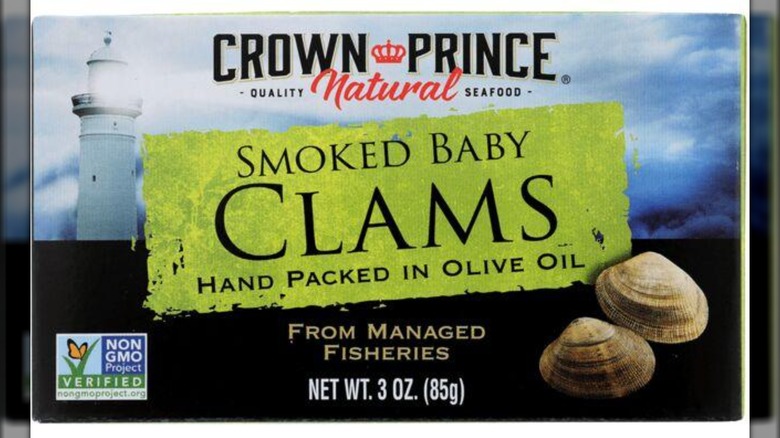What Fans Of Baby Clams Should Know About The Crown Prince Recall
We may receive a commission on purchases made from links.
Crown Prince has been a name in the canned seafood game since 1948. According to its website, seafood lovers may recognize the brand from seeing its products on shelves in a number of well-known stores like Costco, Sam's, Walmart Supercenters, and H-E-B. The company sells a variety of seafood including clams, anchovies, mussels, and oysters. In addition, the Crown Prince sells salmon, which earned good marks in Mashed's roundup of canned salmon brands, thanks to its density and nearly fresh flavor. The fish is also currently listed as an Amazon bestseller that has netted a four-star rating out of five.
Despite Crown Prince's good reviews, some shoppers may find recent news about one of the company's products a little unnerving. According to its website, the company sells two versions of baby clams. Anyone who purchased the boiled baby clams, shouldn't have anything to worry about. However, if you have a can of Crown Prince Natural Smoked Baby Clams in Olive Oil, you'll definitely want to learn more about the company's recent recall.
Crown Prince recalled smoked baby clams due to PFAS
If you've recently purchased baby clams, perhaps for chowder, stew, or ceviche like Simply Recipes suggests, you'll want to take a second look at the label. The FDA has announced that Crown Prince is voluntarily recalling its 3-ounce cans of Natural Smoked Baby Clams in Olive Oil. This means if you have the product, you can take it back to the store in exchange for a full refund. Luckily, there aren't any reported illnesses related to Crown Prince Natural Smoked Baby Clams, according to the FDA.
The FDA reported it found "detectable levels of per- and polyfluoroalkyl substances (PFAS)" in the product. PFAS are chemicals linked to a long list of concerning health effects. The news comes soon after the chemicals were also found in a Bumble Bee Foods product that was similarly recalled. According to NPR, PFAS are a group of chemicals nicknamed "forever chemicals" because they literally take forever to break down. That explains why they have been found in drinking water, prompting an FDA warning. "Even our bloodstream" has been impacted. Though forever chemicals sound like something straight out of a futuristic horror flick, there are, fortunately, remediation strategies in the works. One innovative strategy called Surface Active Foam Fractionation (SAFF) is being used to separate the chemicals from water or soil using bubbles and foam (via Waste 360). Hopefully, this strategy or another one pans out, so we can one day eat our baby clams in peace.

